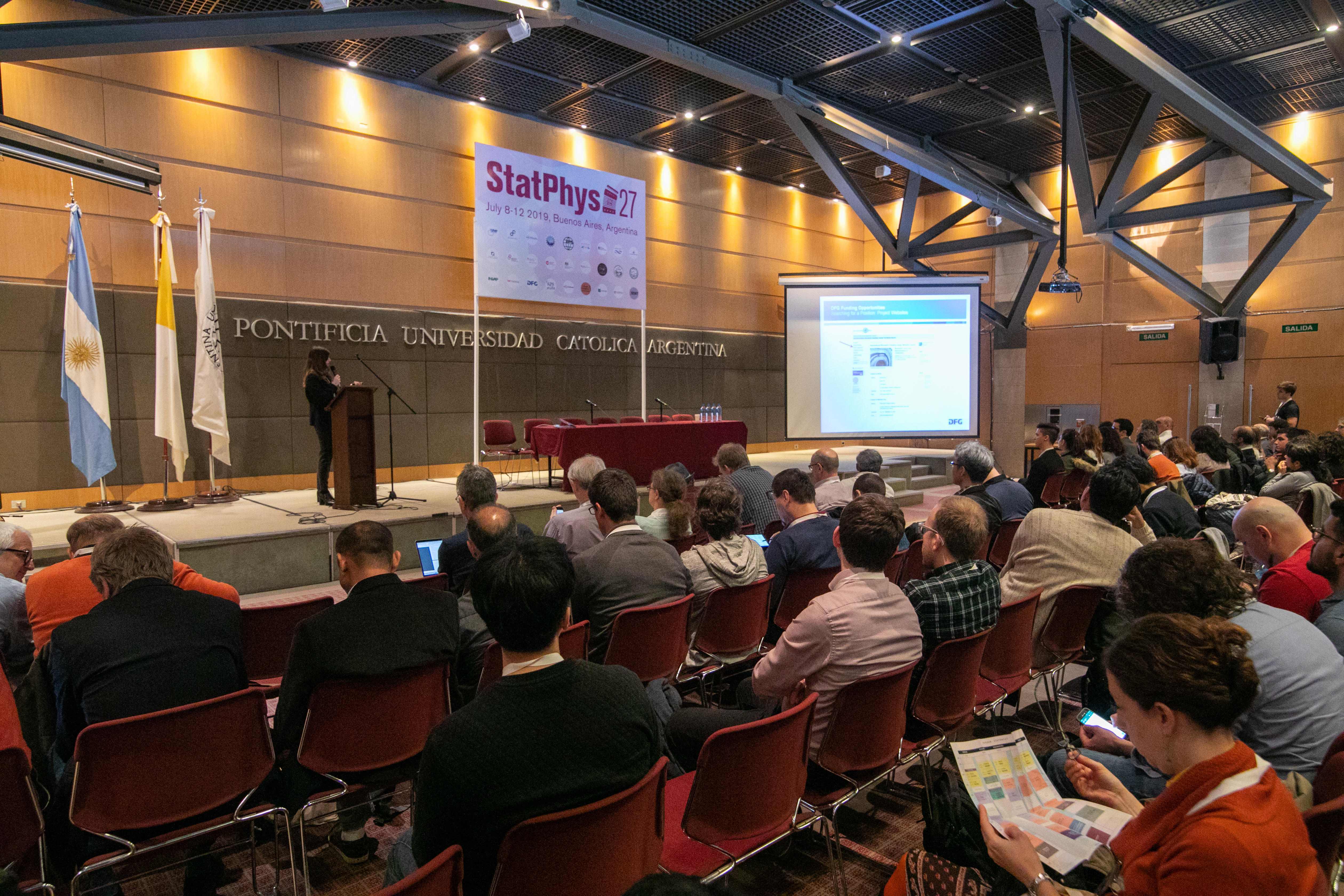DFG Presents Funding Opportunities at 27th StatPhys Conference in Buenos Aires
(22.07.19) Around 700 researchers came together for 27th the International Conference on Statistical Physics (StatPhys) in Buenos Aires in early July.

Maxi Neidhardt presents the DFG funding programmes to those in attendance at the 27th StatPhys Conference
© Claudio Esses
The conference programme comprised a number of presentations and poster sessions on different topics such as the issues in biological physics, the movement of bacteria, disordered systems, non-linear dynamics, turbulence and chaos, as well as on aspects of non-equilibrium and quantum mechanics in condensed matter physics. Mathematical aspects in statistical physics were also touched upon – an area researched by Prof. Dr. Herbert Spohn from the Technical University of Munich (TUM), who was awarded this year's Boltzmann Medal for his work. The Boltzmann Medal is one of the highest accolades in statistical physics and is awarded every three years at the StatPhys Conference.
As part of the conference, the DFG Office Latin America organised Research in Germany activities, which included individual advice at the information booth and a lunch session. Over the course of the week from 8 to 12 July, numerous researchers – mostly postdoctoral researchers as well as experienced researchers – learned about funding and research opportunities in Germany.
On the third day of the conference, Research in Germany held an informative lunch session, which was attended by some 100 interested researchers. Presentations by renowned German researchers gave the audience an insight into Germany as a research location.
Following some introductory information on the German research landscape, Prof. Dr. Ralf Metzler from the University of Potsdam, who was invited to speak at the conference, presented his location and working group. He also touched upon milestones of his career and the related funding opportunities. Prof. Dr. Roland Winkler, who works at Forschungszentrum Jülich, then outlined the DFG-funded Priority Programme "Microswimmers – From Single Particle to Collective Behaviour" and referred to the considerable number of international researchers at his institution. As the third representative of Germany as a research location, Prof. Dr. Martin Falcke from the Max Delbrück Center for Molecular Medicine in Berlin presented the German-Brazilian Research Training Group "Dynamical Phenomena in Complex Networks", which has been jointly funded by the DFG and its partner organisation FAPESP since 2011. The project, which will run until 2021, makes an important contribution to reinforcing relations between the two countries in this specialist area and has produced 250 publications in renowned scientific journals to date.
Maxi Neidhardt from the DFG Office Latin America then presented funding instruments for international collaboration between Germany and Latin American countries. These range from the creation of international collaborations and bilateral individual projects to Coordinated Programmes, depending on the agreement with the relevant partner organisation. In addition, Dr. Cosima Schuster, Programme Director of the Physics and Chemistry Division at the DFG Head Office in Bonn, provided valuable information and tips on how to submit a successful proposal to the DFG and explained the proposal and review process.
Amanda Guzmán from the DAAD Information Centre in Buenos Aires spoke to the audience about the fellowships of the funding organisation. After the presentations all participants were available to answer questions and for one-on-one discussions.